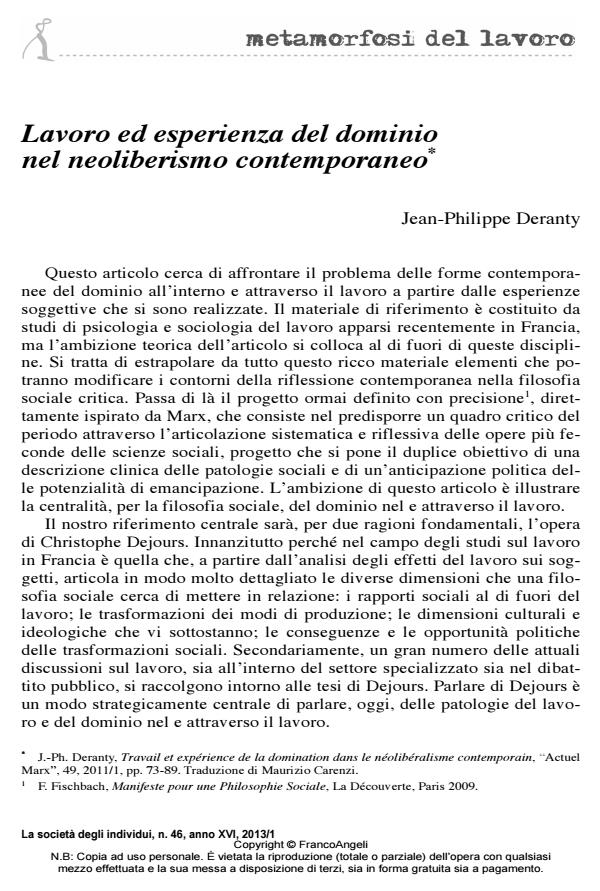Work and domination experiences into contemporary neoliberalism
Journal title SOCIETÀ DEGLI INDIVIDUI (LA)
Author/s Jean-Philippe Deranty
Publishing Year 2013 Issue 2013/46
Language Italian Pages 16 P. 62-77 File size 188 KB
DOI 10.3280/LAS2013-046005
DOI is like a bar code for intellectual property: to have more infomation
click here
Below, you can see the article first page
If you want to buy this article in PDF format, you can do it, following the instructions to buy download credits

FrancoAngeli is member of Publishers International Linking Association, Inc (PILA), a not-for-profit association which run the CrossRef service enabling links to and from online scholarly content.
The article presents some considerations around the notion of ‘centrality of work’. To do that Deranty expressly refers to Marx theories and develops Christophe Dejours psychodynamic approach, as it has been evolving at the Centre National des Arts et Métiers in the last 40 years. Within contemporary neoliberal societies the development of a new division of labour leads to an improved role of management inside private industries and public services, also thanks to the new technologies.This means that management reaches a new essential status in the process of short-term capital gain, that is one of the main features of neoliberal capitalism into the era of globalization. One of the results of the new organization is that work loses its centrality, not only into the factories and the offices, but also among the entire society. This causes a loss of role for the working class, but also generates increased suffering and mental pathologies among workers, that is the specific matter of psychodynamics.
Jean-Philippe Deranty, Lavoro ed esperienza del dominio nel neoliberismo contemporaneo in "SOCIETÀ DEGLI INDIVIDUI (LA)" 46/2013, pp 62-77, DOI: 10.3280/LAS2013-046005